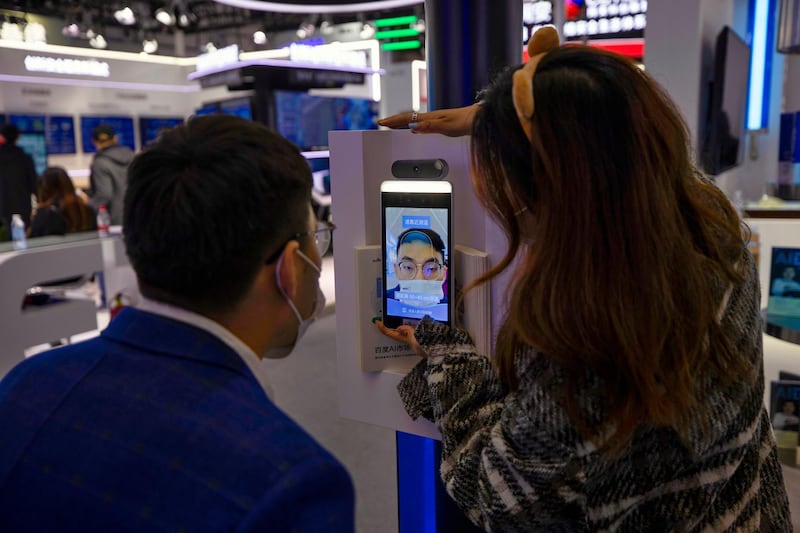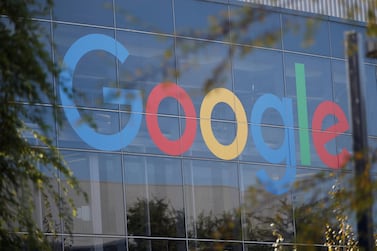Smart Dubai, which aims to make Dubai the world’s first paperless city by next year, will soon start using facial biometrics to authenticate transactions, its chief executive said.
The technology is still being tested but will be introduced soon and will gradually be implemented across government departments in the emirate.
"Globally, facial recognition technology is used by leading organisations to do the full digital on-boarding ... it is very critical in sectors that go through KYC [know your customer] processes," Wesam Lootah, chief executive of Smart Dubai Government Establishment, told The National.
“We see a potential opportunity for the government to use similar technology for doing the digital on-boarding of the citizens and the residents in Dubai,” he added.
"We will start with the government entities … users will not need to go physically to service centres for registration or any other services," Mr Lootah said.
Smart Dubai, which is celebrating its fifth anniversary this month, is responsible for the digital transformation of Dubai government services and spearheading the emirate’s smart city initiatives.
One of its flagship programmes is Dubai Paperless Strategy. Launched in February 2018 by Sheikh Hamdan bin Mohammed, Crown Prince of Dubai, the strategy aims to end the use of paper in government entities by December 21, 2021.
“There are many bottlenecks related to paperwork. It involves cumbersome documentation and wastes time as well as productivity. Dubai government entities were using 300 million units of paper annually in services and internal operations,” said Mr Lootah.
“Stacking 300 million papers vertically is equivalent to 36 times the height of the Burj Khalifa,” he said.
So far, Smart Dubai has eliminated more than 70 per cent of paper use and the strategy has led to savings of more than Dh725 million ($81.74m), as well as 20,350 trees and 7.7 million hours of labour.
“Savings are huge … giving back these hours into actual productive efforts will certainly add to the overall economic growth,” said Mr Lootah.
Savings have come through digitalising services, such as through the roll-out of the DubaiNow app in 2015 that offers residents access to more than 120 services from over 30 government and private sector entities.
“DubaiNow has become very popular. Since its official launch, it has processed 11.47 million transactions, valued at more than Dh6.03 billion,” Mr Lootah said.
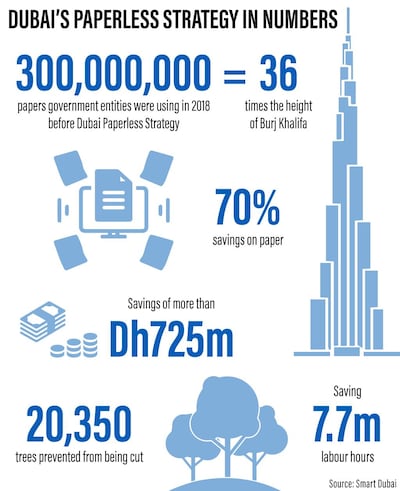
The services on DubaiNow are classed into 12 different categories including bills, telecoms, driving, housing, residency, health and education.
“Our idea is not to use the technology just to enhance efficiency but to create new smart experiences … [while] keeping citizens and residents in focus. It adds to the vision of making Dubai the happiest city, using technology as one of the facilitators.”
_____________
How Dubai is using AI for Covid-19 guidelines
Dubai uses AI to check if you're following Covid-19 guidelines
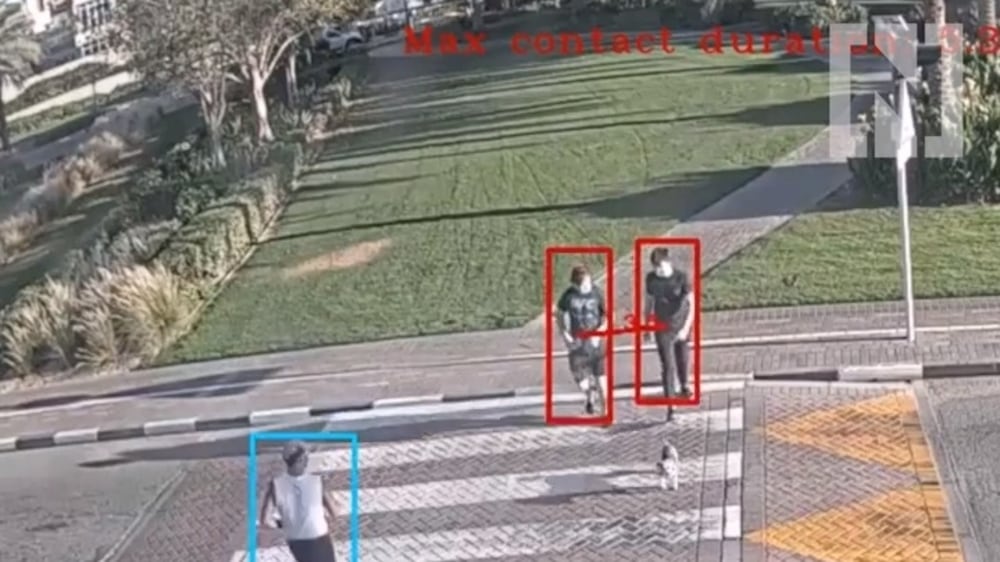
_____________
Smart Dubai is also helping government entities to become more efficient through technology use . Its Government Resources Planning Systems programme is helping users to cut costs.
“For every Dh1 that we spend on GRPS, we save approximately Dh5 for the government. This is a central piece of the digital infrastructure that is serving over 71,000 government employees,” Mr Lootah said.
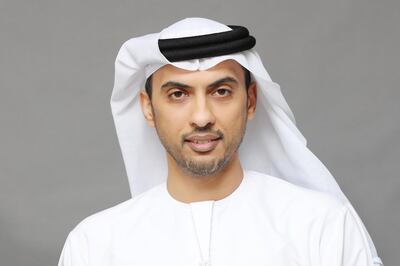
GRPS centralises services for more than 65 government agencies, managing 95 per cent of the government’s budget. It has achieved savings of Dh4.3bn between 2003 and 2015, according to Smart Dubai.
“Perhaps the truest test for the utility of Dubai’s digital transformation came about this year with the global Covid-19 pandemic, which brought unprecedented challenges for cities around the world, slowing down economic activity across every sector – including government,” Mr Lootah said.
Dubai’s advanced digital infrastructure allowed the emirate to provide services remotely, ensuring business continuity and uninterrupted government processes, he added.
“We adapted and scaled up our infrastructure very quickly. Our architecture is designed in a way that it is easily scalable … in a few days, we were able to double our bandwidth to cater to the increased demand,” said Mr Lootah.
“This was at a time when cities around the world saw businesses shutting down and faced difficulties in providing services to their communities.”
The city's digital infrastructure upgrade is the result of 191 agreements signed by Smart Dubai over a five-year period with various local and federal government entities and with private sector providers including IBM, Dell, Du, SAP and Careem.
It also formed the Smart Cities Global Network – the first network of its kind – to share knowledge and ideas about digital transformation with other cities around the world.
